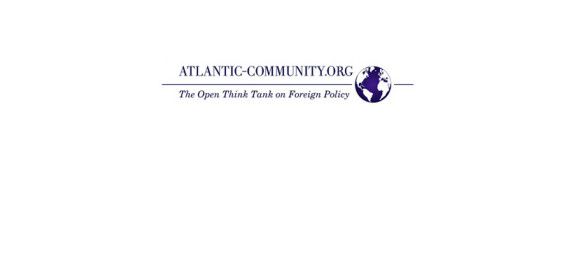Section: Atlantic Community (Germany)
Russia’s Policy Toolbox
The current diplomatic disconnect between Russia and US-EU is monumental. Having returned from the Munich Security Conference former German Ambassador Wolfgang Ischinger stated at the Hertie School of Governance, “Trust between the two sides is virtually at zero.” With the recent crisis in Ukraine it is vital that the Atlantic community assess...
Defending the Rules-Based Multilateral Order against Putin’s Multipolarism
The Ukrainian crisis represents the clashing of world orders; Putin’s multipolarism with European multilateralism. Principles such as the rule of law, democracy, individual rights and civil liberties have no place in Putin’s world of power politics and spheres of influence, but Europe should work hard to preserve them, and stand up to...
Through Putin’s Lens: Power Politics and Polarity
The Ukrainian crisis represents the clashing of world orders; Putin’s multipolarism with European multilateralism. Principles such as the rule of law, democracy, individual rights and civil liberties have no place in Putin’s world of power politics and spheres of influence, but Europe should work hard to preserve them, and stand up to...
NATO Enlargement: Why a Fourth Round is Long Overdue
The events in the Ukraine over the last year and a half have led to some calls for a ceasing of NATO’s successful enlargement process. However, this would be detrimental to the future stability and security of the Western Balkans region. As of 2015, Albania, Croatia and Slovenia are formal members of NATO. Why, therefore, should Montenegro...
When Solving Ukraine Focus on Ukraine, not Russia
When trying to solve the Ukraine crisis, the United States and its European allies concentrated their efforts on punishing Russia. While Moscow is a major stakeholder in the crisis, the keys to peace are in Ukraine. The transatlantic partners must turn to Kiev, Donetsk, and Lugansk in their attempt to bring the country back to normality....
NATO Does Not Want Ukraine to Apply for Membership
Now that Ukraine has voted to drop its non-aligned status, we are hearing an official story from Russia that “NATO has pushed Ukraine to do this.” Endlessly repeated, it is exactly opposite to the truth. Moscow’s policies over the last twelve months have changed popular opinion in Ukraine. From 1991 until 2013 every poll...
Hungary’s Gradual Embrace of Putinism
Hungary’s current Prime Minister not only believes in closer ties with Vladimir Putin, but also would like to replicate his authoritarianism in Hungary. Over the last year, there has been much focus on the crisis in Ukraine, little attention has been paid to Hungary’s undermining of liberal democratic principles under the current...
The Kremlin Reinvention of Ukraine’s History
For two hundred years, Ukraine and Russia have conflicted over Ukraine’s history and sovereignty. Recently the Kremlin has tried to rebrand large regions of Ukraine as Novorossiya, or ‘New Russia’. The Ukrainians are fighting back, however. Long-term implications of this change in attitudes have not yet fully dawned on the Kremlin,...
After Wales: Further Steps for NATO
The NATO summit in Wales last week didn’t do enough to meet its responsibilities in the external world. Its next steps should include taking meaningful steps in Ukraine, placing permanent troops in Eastern Europe, hitting its spending targets, and more. NATO cannot just take care of itself; it has to actively work towards solutions to...
The Myth that Ukraine Cannot Join NATO While Russia Occupies Some of its Territory
There is the perception that NATO’s treaty prohibits it from granting membership to Ukraine given that it is currently involved in a territorial dispute. This is, however, a myth, as demonstrated by the historical example of Germany’s entrance into NATO amid territorial disputes with the Soviet Union. Though it cannot be claimed that...



